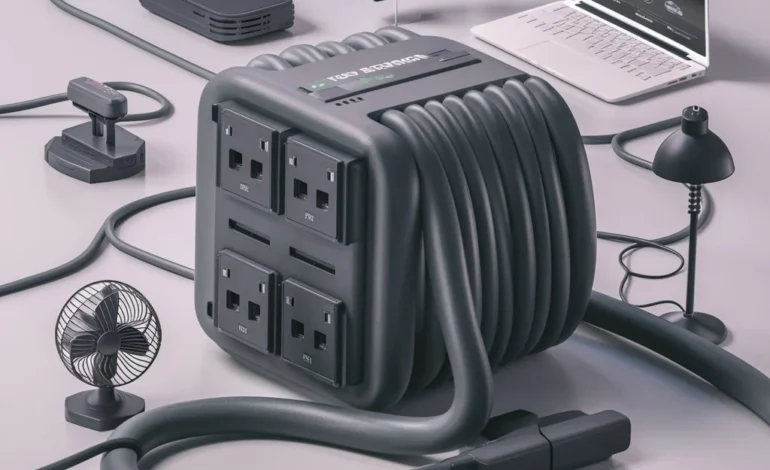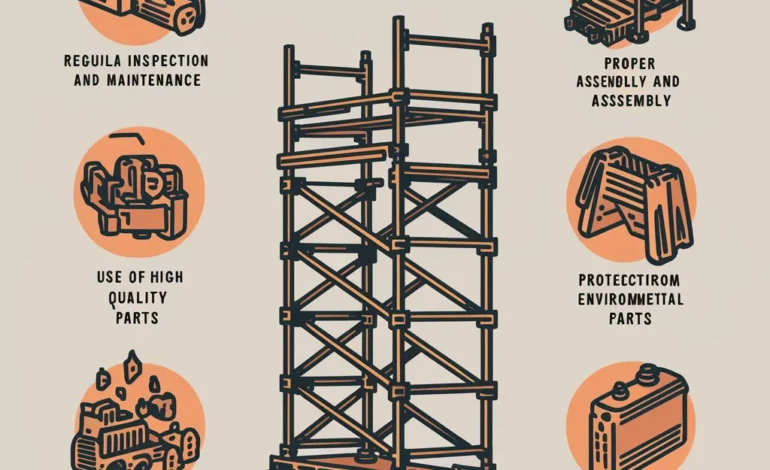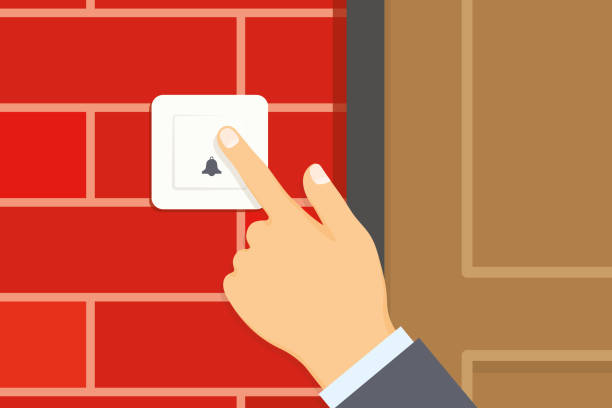The Ultimate Guide To Choosing The Best Bulk Extension Cord

Whether you’re working in a home or business, choosing the correct extension cable is essential for your safety, productivity, and comfort. There is a wide range of lengths, gauges, and features, so knowing what to look for is important. Whether you’re shopping for indoor or outdoor use, this guide will help you consider important factors such as gauge, length, safety features, and more. A bulk extension cord can be a practical and cost-effective solution for large-scale needs, so think about it.
This tutorial will teach you how to choose the right extension cord, whether using it to run a few light items around the house or a fleet of heavy machinery in a factory.
How to Pick the Best Extension Cord for Your Needs
Indoor Use
Length: Pick a cord with just the right extra length to reach all your electronic gadgets.
The majority of home appliances just require a 16-gauge cord.
Make sure the cord is adequately insulated and grounded for safety.
Outdoor Use
There are extra factors to think about when dealing with outside extension cords:
Weather Resistance: When purchasing weather-resistant jackets, look for cords marked for outdoor use.
To accommodate the increased power demands of outdoor equipment, choose a 14-gauge or 12-gauge cable.
Length: For yard or garden activities, a more extended chord may be required.
Targeted Applications
Heavy Duty Applications: Select a 12-gauge chord with a high amperage rating for power tools and other high-power appliances.
Devices: Think about getting cables that have surge protection built in if you have any delicate devices.
Never underestimate the length of the cord you’ll need
If you’re not sure how long an extension cord, you’ll need, it’s best to purchase the longest one available to give yourself a little leeway. A longer cord is safer and more convenient. It’s unpleasant to stretch so far to reach your work area. The reason behind this is that connecting extension cords in a daisy-chain fashion is not recommended.
There is an increase in electrical resistance between the outlet and the object you are attempting to power due to the additional length of many cables plugged in simultaneously (in the absence of larger wires to compensate for the distance).
Power tools like drills, saws, and vacuums operate at reduced levels when exposed to increased resistance, which in turn causes voltage to decrease. Adding more cords in a daisy chain increases the resistance, which in turn increases the chance of heat buildup, which could lead to a meltdown or fire.
You should still acquire a bulk extension cord for practical reasons, even if you usually disregard safety concerns in favor of the shorter, less expensive cord: If the cord is long, you won’t have to go out and get an additional bulk extension Cordas soon as possible.
More power is carried via thicker cords.
Aside from its length, an extension cord’s safe carrying capacity is determined by the thickness of the wires within. Over greater distances, thicker wires can transmit more electricity. If you’re looking for a cord to power low-power devices like lights, battery chargers, or a stereo, you should be able to find one in a big-box retailer (see table below). To securely and efficiently operate power tools like drills, saws, or wet/dry vacs, the bare minimum won’t cut it.
Carefully Review the Details
You should also be aware of the extension cord’s suitability for outdoor use, in addition to its length and gauge. If it doesn’t have the necessary ratings for outdoor use, it may overheat and cause a fire.
The Power Extension Cord is printed with the letter “W” for outdoor use. A string with the letter “S” carved on it is likely intended for general-purpose use. Additionally, you may tell if electricity is flowing via some high-end wires by looking for indicator lights.
S: Wide application
J: Junior grade
T: Insulation made of thermoplastic
E: Elastomer made of thermoplastic
O: Withstands oil
W: Weather Resistant
P: Wire in parallel
Observe all Safety Instructions
Specific procedures must be followed whether you are using a Right-Angle Power Cord or one to extend the electrical resource. If you must use a chain, use a longer one rather than multiple shorter ones. Also, ensure the extension cord is free of damage or fractures before using it. If you come across any, don’t use it.
If there is a trip danger, keep the kids away and remember where you put the cord. Running these cords from beneath the carpet or through doorways is not a good idea due to the potential for damage over time.
Think About the Rating for Power
It is imperative that the power extension cords you choose can manage the power demands of the devices that will be connected. You need to ensure that your extension cable is rated appropriately for the amperage of your tools. Then, how is the amperage measured? The equation for amps is watts divided by voltage.
If the extension cord does not have the maximum amperage rating, you can determine its capacity by checking its American Wire Gauge rating. A smaller AWG number indicates a thicker and more capacitive wire. The lower the number, the better the cord’s power-delivery capacity.
Keep it Cool
A vent is necessary to prevent the extension cable from overheating due to the high heat generated by the power flowing through it. Therefore, keep it free of rugs, ceilings, and other obstacles while it is in use.
Unplug the cord immediately if you notice it has become too hot to touch, and investigate the source of the overheating. Do not use the cord until you determine the problem.
In the end!
Knowing what you need, taking the cord’s length, gauge, and safety features into account, and checking that it’s appropriate for the location are all essential steps in selecting the correct extension cord. Bulk Extension Cord purchases can result in significant cost savings and ease of use for large-scale or commercial applications.
Maintaining dependable and risk-free operations requires constant attention to quality and safety. No matter where you are—in the yard, on a construction site, or even at home—the correct extension cord will allow you to power your gadgets efficiently and safely.









